Poster
- Title: RaiseWikibase: Fast inserts into the BERD instance
- Authors: Renat Shigapov, Jörg Mechnich & Irene Schumm
- Abstract: The open-source tool RaiseWikibase for fast data import and knowledge graph construction with Wikibase is presented.
- BERD@BW: Business & Economics Research Data Center Baden-Württemberg
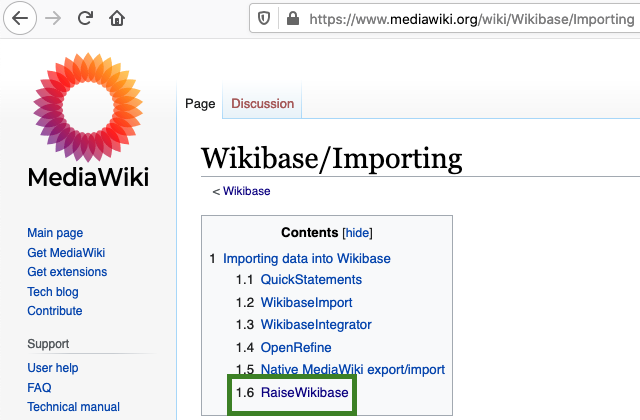
Motivation
- German company data is fragmented over providers, registers & time spans.
- To handle with that, we create the BERD knowledge graph for German company data.
- Wikibase is chosen for implementation, but data import via the Wikibase API is a bit slow:
| the Wikibase frontend | the Wikibase API | MariaDB |
|---|---|---|
| manual page creation | WikidataIntegrator | wikibase-insert |
| WikibaseIntegrator | RaiseWikibase | |
| wikibase-cli | ||
| WikidataToolkit | ||
| Pywikibot | ||
| QuickStatements | ||
| less than 1 page per second | 1-6 pages per second | 100-300 pages per second |
RaiseWikibase
- Open-source Python tool.
- Adapted to Wikibase Docker Image “1.35”.
- Connects to MariaDB via the mysqlclient library.
Main functions
The page function executes inserts into the database but does not commit them:
from RaiseWikibase.dbconnection import DBConnection
from RaiseWikibase.raiser import page
connection = DBConnection()
page(connection=connection, content_model=content_model,
namespace=namespace, text=text, page_title=page_title, new=True)
connection.conn.commit()
connection.conn.close()
Multiple page functions are wrapped into a transaction inside the batch function:
from RaiseWikibase.raiser import batch
batch(content_model='wikibase-item', texts=[item for i in range(1000)])
where item is the JSON representation of an item created using the entity function.
Performance
- The insert rate decreases approximately linearly with increasing number of characters per wikitext and with increasing number of claims per item.
- Small pages are uploaded at rates of 250-350 wikitexts per second and 220-280 items per second.
| Wikitexts | Items |
|---|---|
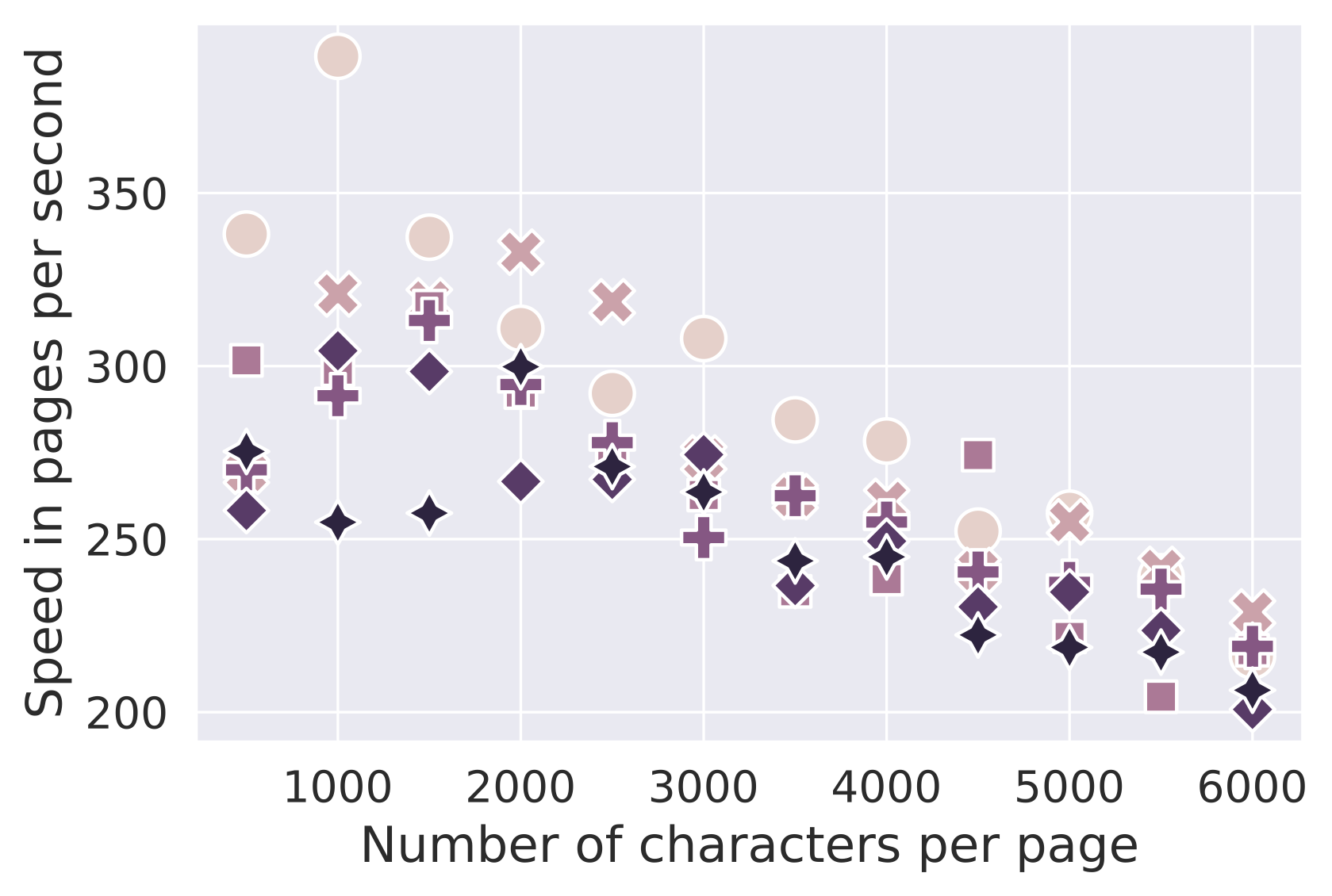 | 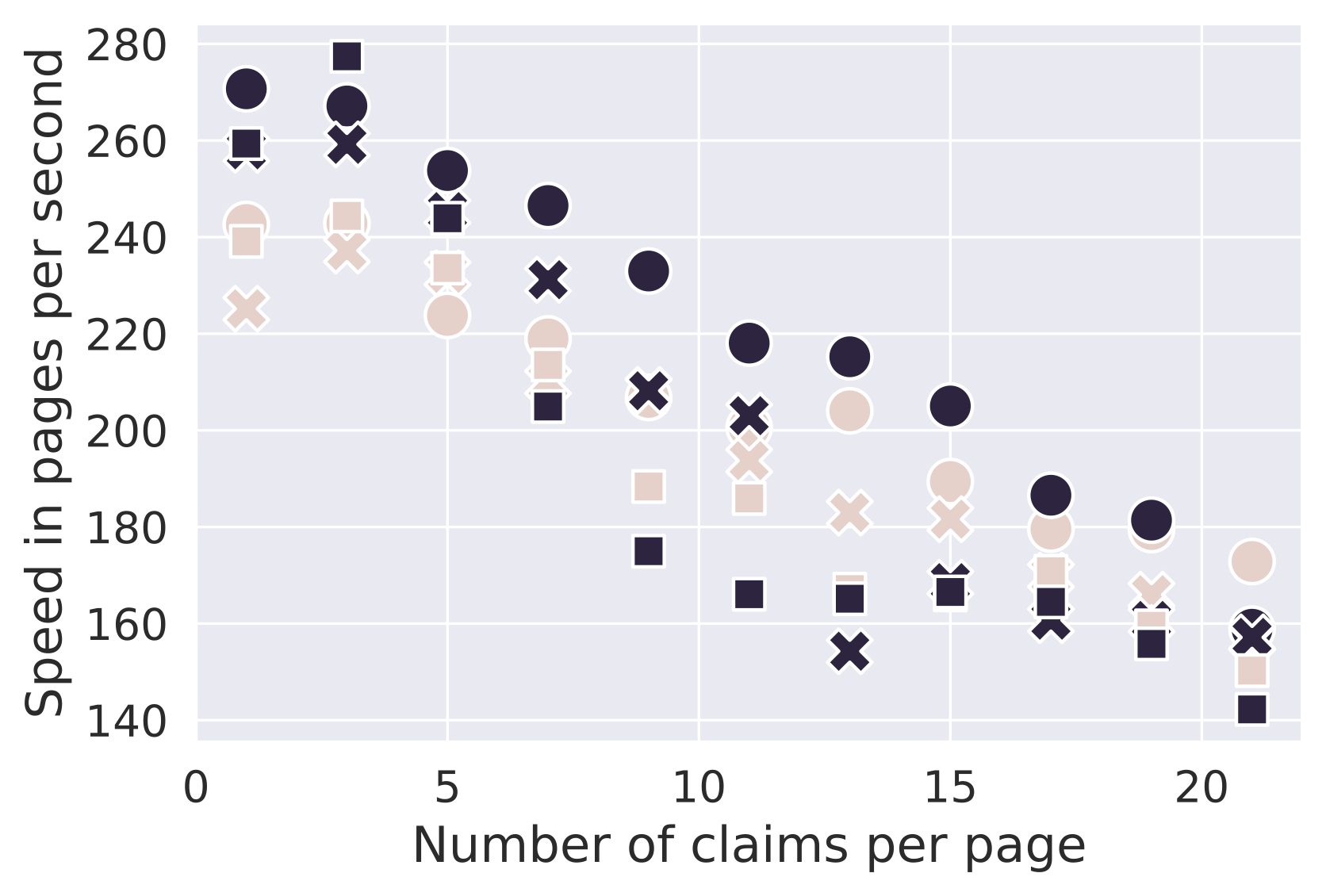 |
Configuration
- The folder texts contains templates, modules and other unstructured data.
- Modify them and add your own files to texts.
- Run the function fill_texts.
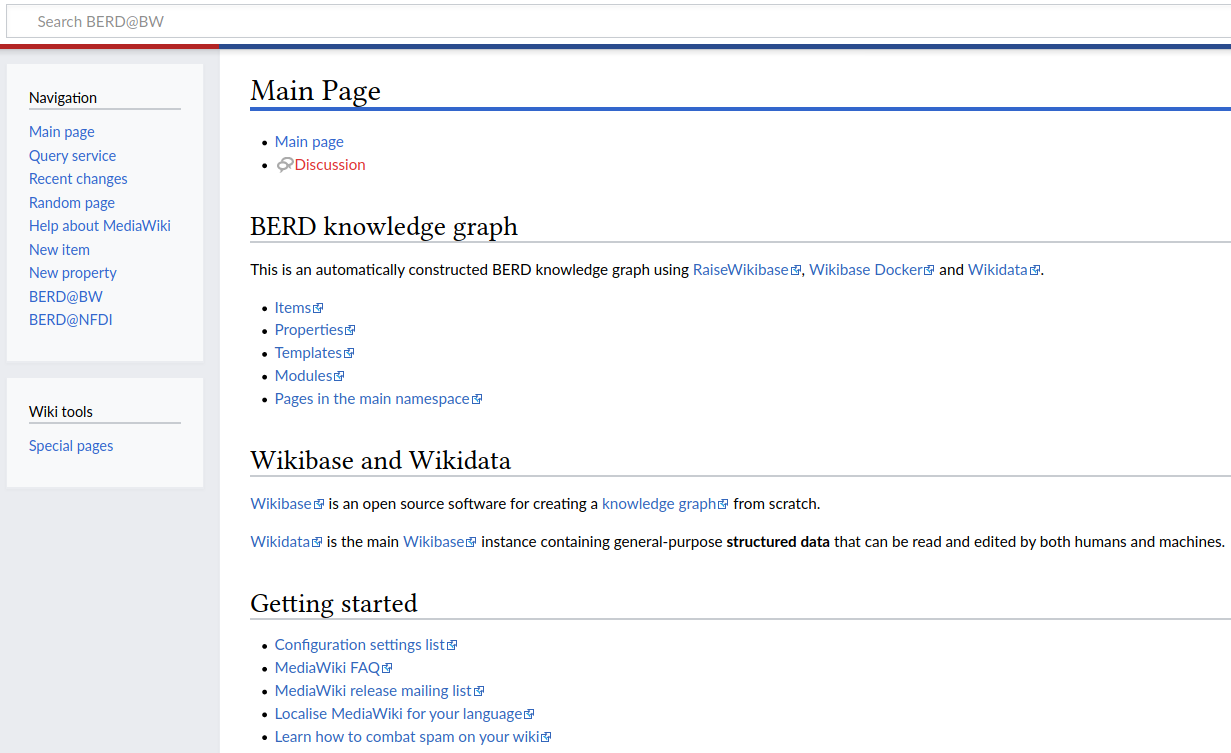
Federated properties
- Federated properties are under development in Wikimedia Germany.
- Therefore, run the script miniWikibase.py.
- It creates all properties from Wikidata in a local Wikibase instance.
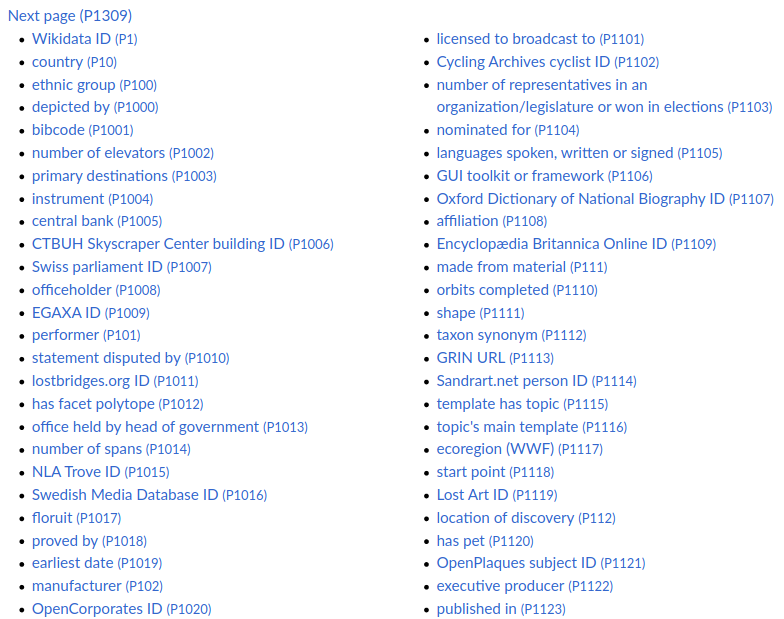
Creating a knowledge graph
- Download OffeneRegister dataset donated to OKFD by OpenCorporates.
- Semantic annotator bbw annotates the tables automatically using Wikidata.
- Run megaWikibase.py.
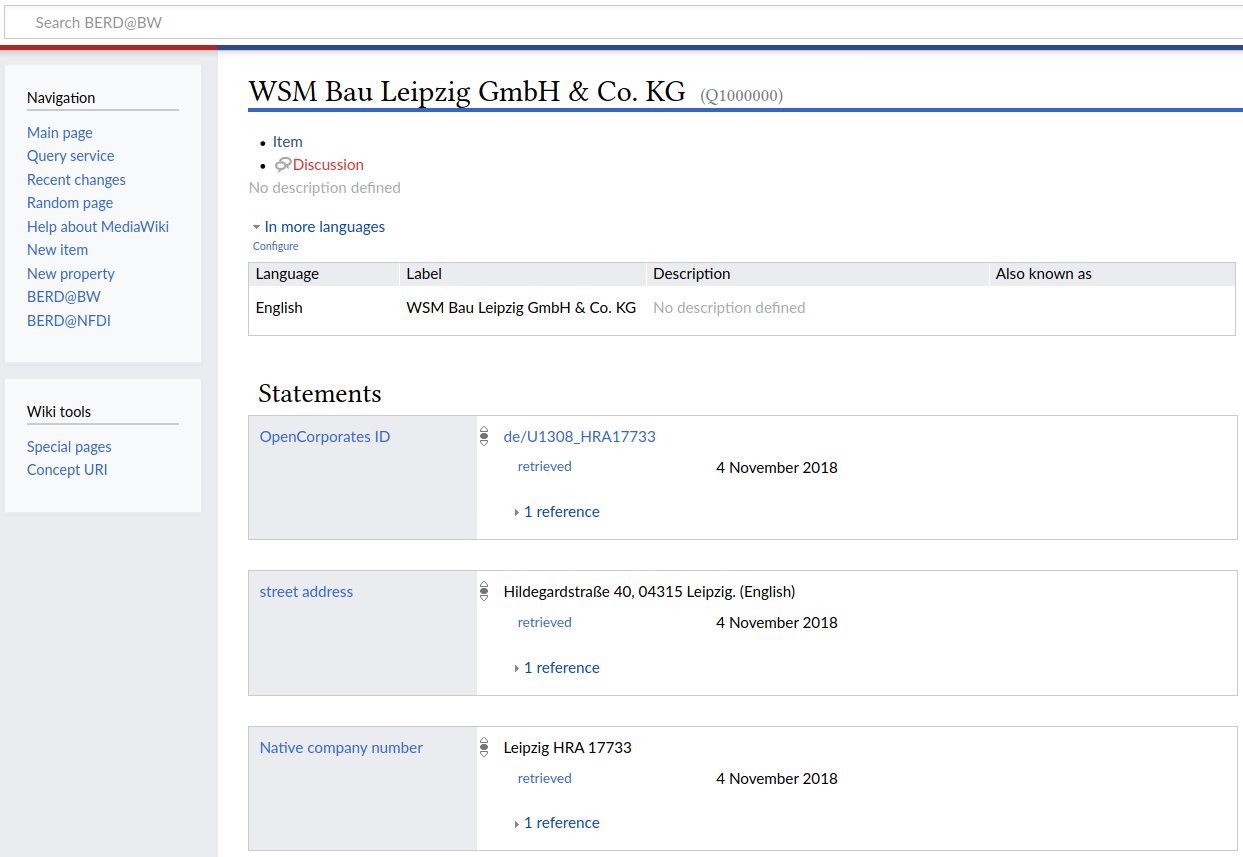
Conclusions
| 1. Clone RaiseWikibase and adapt the files for your use case. 2. Build fast your own Wikibase knowledge graph. 3. Join the Wikibase Ecosystem. | 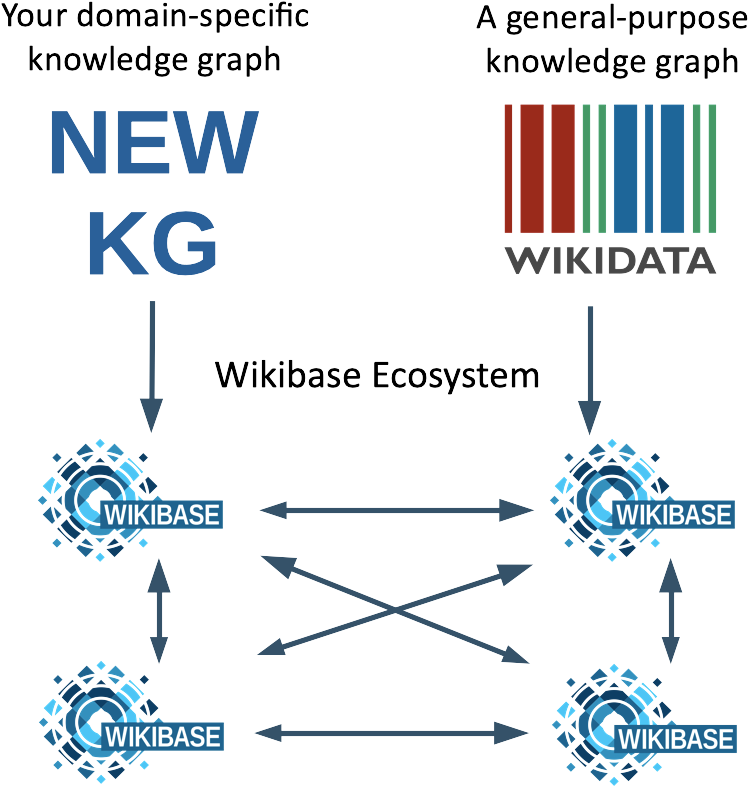 |